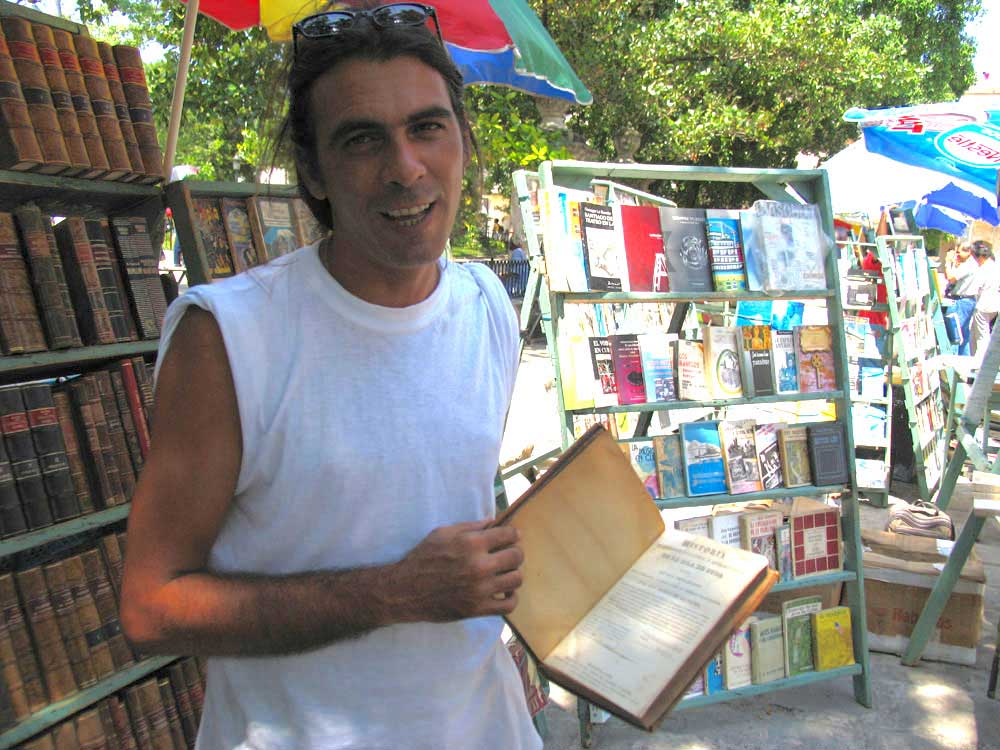From the 1960s through virtually the present day, the Cuban Communist state promoted the idea that the books, ideas, political history, culture and social struggles that preceded it were inconsequential themes for discussion at best and taboo topics at worst. Nonetheless, thousands of Cubans kept their families’ libraries, many of them in exactly the same condition as the day that their former relatives (lawyers, intellectuals, writers, judges, doctors and teachers) fled the country. Younger generations later discovered that old books and objects from the past were not only worth saving but selling to collectors, researchers, tourists and historians like myself. The brainchild of Havana’s long-time Historian of the City, Eusebio Leal, a market for the display and sale of old books by individual dealers opened before the once opulent Palacio de los Capitanes Generales in Old Havana’s Plaza de Armas. However dismaying it may seem to some, old book dealers rescued thousands of books from oblivion, even as they appeared to sell off the national patrimony. Indeed, the historical questions that they contain were not considered part of that national patrimony for decades. Most signs point to the fact that such questions about the past still are not. For historians like myself, excellent, devoted libreros like Damián, pictured here, contributed immensely to the revival of Cuban history that the partial dismantling of ideological barriers to scholarship and archival research has represented since the 1990s.
